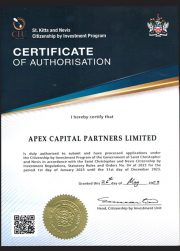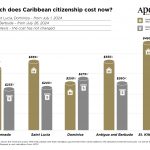Q&A
Second passport by investment — frequently asked questions
What is a second passport? Each client is unique. Each situation is different. We gathered below some of the questions that we receive regularly. Should you need more information or have a question, please contact us.

Is name change allowed?
Some countries allow an applicant to change his and his family’s name, and some do not.
Do I have to attend an interview?
Depending which program the investor chooses, an interview might be mandatory. Caribbean Citizenship by Investment Programs generally do not require the applicant to attend an interview, however legally they are allowed to insist on such an interview.
If I hold a Caribbean citizenship, can I travel visa-free to the U.S.A.?
Currently, no Caribbean citizenship allows visa-free travel to the U.S.A. However, the Grenada Citizenship by Investment Program allows the investor to apply for an E-2 visa (U.S.A.).
Are there any restrictions on who can apply?
Some Citizenship by Investment Programs apply restrictions as to the applicant’s current citizenship. Also most countries will not accept candidates who have been refused a visa in a country to which they would gain visa-free travel to.
Is there a maximum number of dependents allowed?
There is no limit on the number of dependents who can apply with the main applicant.
Are there any minimum educational requirements?
No, there is no education requirement.
Can someone transfer the funds on my behalf for my citizenship?
Some Citizenship by Investment Programs will let someone else transfer the funds on the investor’s behalf. However, certain procedures must be respected in order to meet bank requirements.
Are there countries that allows me to add my children as dependents if they are 27 years old?
Some Citizenship by Investment Programs allow investor’s children to apply as long as they are full-time students.
Can I apply for citizenship (or my family) if I don’t have a passport?
All programs require a valid passport. However, there can be some slight exceptions in cases of extreme hardship.
Can I apply for citizenship (or my family) if I don’t have a birth certificate?
All programs require a birth certificate. However, there can be exceptions. Depending on your personal history, we might be able to help you.
Is there a program that recognizes same sex marriages?
Many programs define “spouse” as a partner of the opposite sex. Some residence by investment programs such as the Canadian and US programs do accept same sex marriages.
Is it possible to speed up the application process?
There is currently a fast-track option in St. Kitts, where additional fees apply. However the best way to assure a speedy process is by making a well-prepared and complete application.
What happens if a dependent child turns 18 during the application process?
If the file has been submitted before the child turns 18, there won’t be any consequences.
Which programs allow me to include my parents in the application?
Most of the Citizenship or Residency by Investment Programs allow parents to be included in the application; some age restrictions do apply.
If I acquire a Caribbean citizenship, how will I be taxed?
If a Caribbean citizen does not live in the Caribbean there will be absolutely no tax consequences. The different countries have different tax systems so it is important to review those tax systems if one is interested in taking up residency in the Caribbean.
Can the applicant pass on his citizenship to his grandchildren (third generation)?
In some of the Islands such as St. Kitts and Nevis citizenship is passed on from generation to generation. In St. Lucia currently that is not the case.
After being granted citizenship, what happens if the main applicant has a baby? Will the newborn automatically receive the Dominica citizenship (if the baby was born abroad)?
The applicant will have to apply for his newborn to obtain the citizenship and pay certain applicable fees.
With respect to the Quebec Immigrant Investor Program, does an investor have any preferential treatment if he/she speaks French?
Yes. French speaking applicants are not subject to the program cap (no quota restrictions), may submit an application at any time during the year and are given priority processing, which means that decisions can be rendered within a matter of months.
How long does it take to get the Cyprus citizenship and passport?
Typically, the entire process of obtaining Cyprus citizenship and passport will take six months.
When obtaining a Caribbean citizenship, for how many years is a passport valid?
Antigua and Barbuda: 5 years
Dominica: 10 years
Grenada: 5 years
St Kitts and Nevis: 10 years
St Lucia: 5 years
How does Grenada being a part of the Commonwealth of Nations help an investor?
Being a citizen of a member of the Commonwealth of Nations brings several benefits. For example, an investor will be able to travel easily across member states, they will be protected by the embassies and commissions of other member states across the globe, and they will be eligible for certain sporting activities (the Commonwealth Games).
What are the requirements to apply for the Quebec Immigrant Investor Program (Canada)?
To be eligible for this program, an investor must:
- Have, alone or with his accompanying spouse, including de facto spouse, net assets of at least $1,600,000 CAN obtained legally;
- Have experience in management;
- Intend to settle in Québec and sign an agreement to invest $800,000 CAN with a financial intermediary (broker or trust company) authorized to participate in the Investor Program.
Will the Cyprus citizenship automatically grant an investor European citizenship?
Cyprus is a member of the European Union, which means that its citizens are European citizens. They can live, work or study anywhere in Europe.
If an investor opts for a Golden Visa (Portugal), can it also apply to family members?
Yes. The investor’s family, namely children, spouse and dependent family members, can also apply and obtain a resident permit from Portugal.
When can an investor be eligible for a permanent residency in Portugal via the Golden Visa scheme?
An investor and his family are eligible for permanent residency after 5 years and Portuguese citizenship after 6 years.
Is there an expiry date to Citizenship by Investment programs?
There is no expiry date with respect to Citizenship by Investment programs.
Is there a quota for Caribbean Citizenship by Investment programs?
There is no cap in the number of applicants accepted in Caribbean Citizenship by Investment programs.
What is an economic citizenship?
Citizenship by Investment programs enable individuals to acquire a citizenship (passport) by making a substantial financial contribution to a country.
What happens to the financial contribution (donation)?
The Citizenship by Investment programs are usually structured to ensure that the applicant’s donation contributes to the creation or maintenance of infrastructures or to help the economic development of the country they are investing in. Furthermore, these programs are another tactic to attract foreign direct investment.
Does an economic citizenship grant you a particular/special status?
Obtaining a citizenship via a Citizenship by Investment program does not grant a particular/special status.
Once I become a citizen through a Citizenship by Investment program, do I have the same rights as citizens who were born in that country?
Obtaining a citizenship via a Citizenship by Investment program enjoy the same rights and privileges as any other citizen.
In order to apply to a Citizenship by Investment program, do I have to renounce my citizenship?
No. Citizenship by Investment programs allow for the applicant to keep dual citizenship.
What does the acronym CRS mean?
The Common Reporting Standard (“CRS”) is a regulation initiated by the OECD (the Organization for Economic Cooperation and Development).
What does CRS mean, more specifically (Common Reporting Standard)?
The CRS requires financial institutions to identify customer tax residencies and report financial accounts held directly or indirectly by foreign tax residents to local tax authorities.
What is the objective of CRS (Common Reporting Standard)?
The CRS seeks to establish the tax residency of clients. It gives participating countries transparency on the financial assets held offshore by their residents.
Who has to comply with CRS (Common Reporting Standard) regulations?
All financial institutions including banks, insurers and asset management firms, in participating countries, are required to be compliant with the CRS.
Once I renew my passport, will the passport number be the same?
No, your second passport will have a unique number. More info>>
Is it possible for me to visit a country of which I hold citizenship without any plans to leave?
Yes, definitely. Once you become a citizen of a country, it means that you hold all the same rights, privileges and liberties as any other citizen. You can stay there as long as you want.
Can I get a second passport without having to visit the country where I want to apply?
Depending which Citizenship by Investment program you want to apply, you can obtain a second passport without having to visit it.
When applying for a second passport, will my current country of citizenship be made aware of it?
Some countries do report it, some – not. If confidentiality is an issue for you, then the choice of citizenship should be made carefully.
Which residency program would you recommend for an investor who is not interested in Citizenship by Investment Programs?
Depending on what your needs and objectives are, we can suggest different residency programs such as Canada, the United Kingdom or the United States.
I want to travel with my new passport but there are no stamps in it; will it cause problems?
As long as your passport is valid, you should not have issues because you have the absolute right to use it.
Which Citizenship by Investment program is the best?
Choosing a program will depend on your objectives in obtaining a second passport, your country of citizenship and your budget. Each program has its own requirements and benefits.
Will my current address be shown on my new passport?
No, the current address of the applicant is not shown on the passport.
Is obtaining a second passport legal?
Yes it is; make sure to verify if you are allowed dual citizenship.
When obtaining a second passport, do I have to renounce my original citizenship?
We recommend verifying the laws in your country and seeing if they allow dual citizenship.
Is the process of obtaining my second passport confidential?
Yes it is; the entire process is confidential.
Do I have to speak the country’s language in order to apply for a second passport?
When applying for a passport via a Citizenship by Investment program, in countries such as Dominica, Grenada, St Kitts or Cyprus, to mention a few, you are not required to speak the official language of the country.
Can my new citizenship be revoked?
For the majority of Citizenship by Investment programs, passports cannot be revoked. Some countries may decide to revoke a passport if, for example, the new citizens have committed acts which could bring the country into disrepute.

Sofia Silina,
Vice-president, Russia and CIS
«Our team members all share the vision and values of the company and play important roles in the success of Apex Capital Partners Corp. Together we open a boundless world for each client and give them freedom to invest in their future!»



